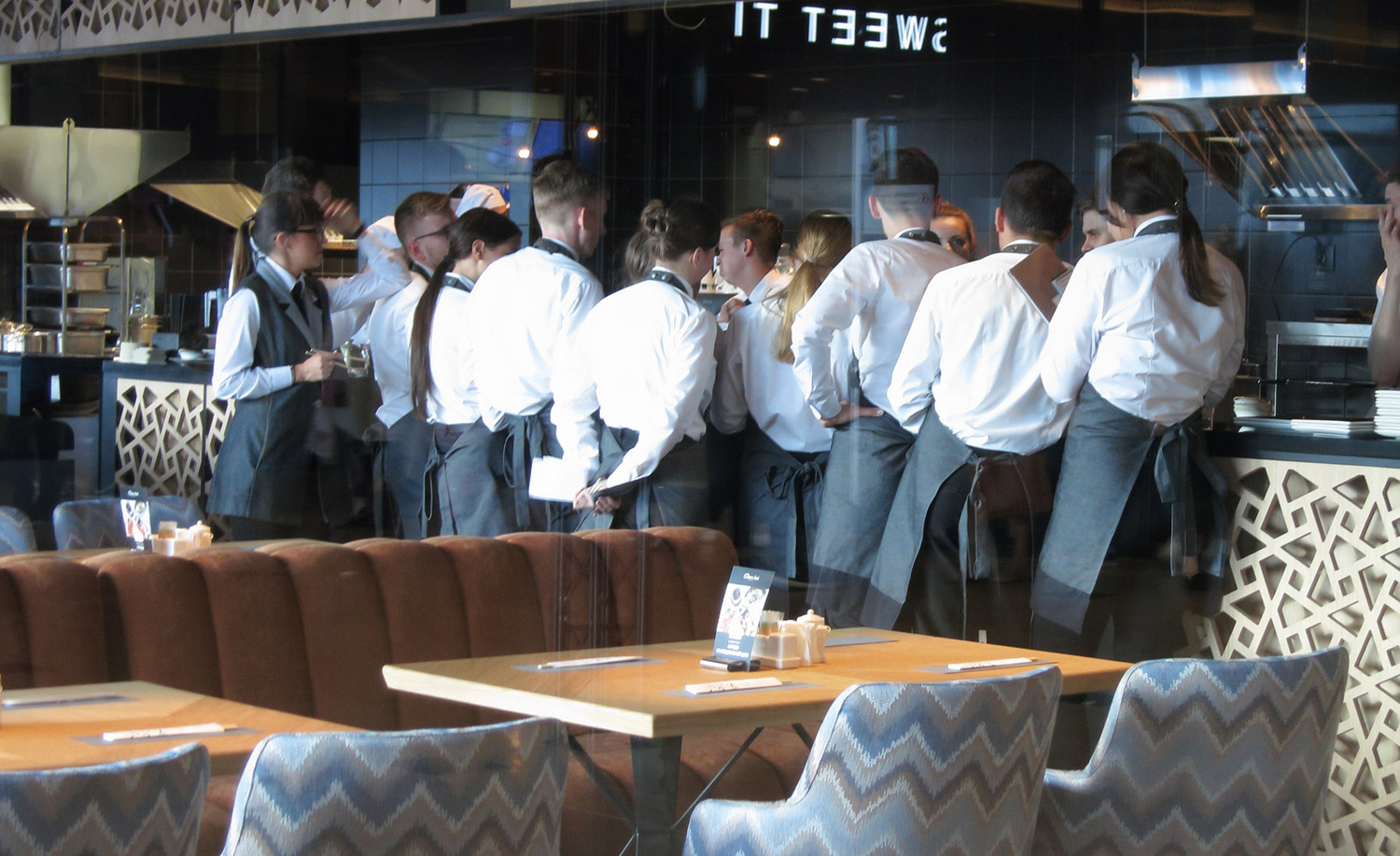How secure is your hospitality business?
Seven tips to make security pay its way in the new normal in hospitality from industry expert Chris Coughlin, from Stanley Security
When people go out for a meal, they predominantly focus on the food, that’s what they post pictures of on their social media. But it’s about so much more than that – the drinks, the venue, the atmosphere and, of course, the service. For me, good service is about showing personality and enthusiasm, and this goes a long way to cementing the perfect experience before the food has even touched the plate.


You want someone who is attentive and bubbly. A great personality and team skills are very important. They need to be able to read people and their body language. If customers are having a deep conversation, they don’t want
to be disturbed. Staff need to think on their feet and read the room, and also be adaptable – the ability to change your ‘performance’ depending on who you’re serving is a useful tool.
This Christmas will be like no other in the hospitality industry. Demand currently outweighs supply with staff, which makes it challenging. Your team’s health and wellbeing need to be prioritised. At times, they’ll be working in difficult circumstances. It’s going to be busy, so everyone needs to take time to look after themselves.
There’s no barrier to entry in our industry, which is brilliant; we could be recruiting someone with no experience or someone who has 20 years’ worth. However, this can cause problems.
In busy periods, team members can sometimes be thrown in the deep
end with little or very basic training and things are missed. We’re great at teaching barista or sommelier skills but the foundations need to be there first. Are staff members collecting all the cutlery from a table as well as plates? Are they keeping an eye on drinks?
There’s a fine line between being the third wheel of a table and being a sensitive host. After ordering, check in with customers during every course. If a glass is a third full, come over and ask if they’d like any more drinks.

“ “Check in with your team regularly. Don’t treat them as resources, remember they are people””
Involve your team when making menu or décor changes, so they’re part of the decision-making process. They are your focus group – people of different ages, experiences and backgrounds. The team will be more loyal to your business if they feel they’re helping you build it, and it gives them a sense of pride. Plus, you’ll get a better product at the end of it.
Check in with them regularly. Don’t treat your team as resources, remember they are people. Some operators are restricting opening hours or offering shorter menus to prioritise the welfare of their team. You don’t want your team to burn out. Make sure when staff are there, they’re doing the best they can. The first priority has to be your team or they’ll leave you and go elsewhere and you’ll lose out in the long run.

“74% of people said good customer service was what influenced their dining decisions most.”
The best way to avoid complaints is obviously to avoid the situation in the first place. If you have lots of bookings, you’ll know that you can’t take any orders during certain times. Book your tables accordingly. If you take walk- ins, explain there will be a wait of xx minutes/hours and they can have a drink first and look at the menu. Managing their expectations is very important.
If a problem is unavoidable, be communicative with customers and plan a contingency with the team. Customers tend to be more relaxed at Christmas as it’s a happy occasion, so keep topping up their drinks and chatting with them to maintain that atmosphere.

Everyone’s tastes are very different and are subjective. If the dish isn’t what it should be, then hold your hands up and take appropriate actions such as replacing the meal. If you’ve produced what you said you’d produce according to the menu, then it comes down to the individual customer’s taste. Honesty and empathy are key.
Again, if it’s your fault, hold your hands up and explain what you’ll do about it. But if someone is being difficult for the sake of being difficult, be honest in your response and explain that you provided the service that was offered. It can be hard but try not to respond emotionally or take it personally.
Sign in to save topics you love, and build your archive of events, menus and articles.